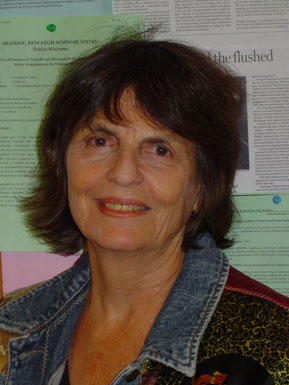Cuba After Castro: A New Revolution?
CAS sociologist on the chance for democracy in Cuba

After 49 years as Cuba’s communist leader, Fidel Castro resigned as the country’s president on February 19, 2009, almost two years after handing over power to his brother Raúl, following a long illness. Castro’s move has sparked an international dialogue between those who see his resignation as an opportunity to bring democracy to the country and others who believe that Raúl Castro, seen as his brother’s likely successor, will not change the current system of central communist control.
BU Today spoke with Susan Eckstein, a College of Arts & Sciences professor of sociology and the author of Back from the Future: Cuba Under Castro and the forthcoming Building Bridges: From Cuba to Miami and Back, about what might be in store for the country.
BU Today: Did experts think this day would ever come?
Eckstein: Yes, because Fidel is human and couldn’t go on ruling forever.
What has been the response in Cuba and among the expatriate community in Miami?
I don’t know about Cuba, since I didn’t follow the reports yet, but in Miami’s Little Havana, people celebrated a post-Castro era already, in the summer of 2006 when Fidel had intestinal surgery. They will do the same now. But they now will have another Castro to deal with, Raúl. He has been second-in-command for decades. Castroism as such has not ended.
Will Raúl Castro bring democracy to Cuba?
I doubt that Raúl will bring to Cuba democracy as Americans know it and want it. However, I do think he’s likely to oversee limited market reforms and possibly greater political tolerance. But this doesn’t mean that the Cubans will give up the system that they’ve known for a half a century. Raúl is pragmatic, and he delegates authority much more than Fidel. Younger people will be brought more into the leadership, a trend under way since Soviet ties ended.
What kind of cultural shifts do you see in international perceptions and in U.S. perceptions of Cuba?
Most of the world is much more open to Cuba than the United States is. Washington’s stance is mostly shaped by the rich and powerful Cuban-Americans in Miami, who are very well organized. They left Cuba soon after Fidel assumed power, are deeply anti-Castro, and advocate as impermeable a wall across the Florida Straits as possible, on the supposition that the regime would thereby collapse. Through political action committees, lobbying, and votes in Florida, the largest swing state, they influence U.S.-Cuba policy. For example, at a time when we have resumed diplomatic and economic relations with China and Vietnam, the U.S. government maintains an embargo on Cuba. At the cross-border, people-to-people level, the Bush administration became more restrictive in 2004 under pressure from the influential Cuban-Americans. Since then Cuban immigrants can visit island family only once every three years, and they can visit only the closest of kin. And the Bush administration clamped down in 2004 on the amount of money, remittances, Cuban immigrants can send to their island families. We do not impose such restrictions on immigrants from other countries.
Recent arrivals from Cuba are here to live the American dream, but unlike the first who fled the revolution, also to earn money to help their families back home. With the money that they are sharing, Washington restrictions notwithstanding, islanders are becoming much more materialistic and they are taking on U.S. values. Thus, it is in the U.S. interest to allow family visits and income-sharing. If we allowed Cuban immigrants to visit more frequently and to remit more, there would be more change in Cuba. The net effect of remittances is to undermine the state socialist economy and state authority and to transmit U.S. culture. The humble recent émigrés are changing Cuba more than the rich and powerful first émigrés. It is an unintended consequence of their transnational family commitments.
Can you comment on the conspiracy theories saying that Castro has actually been unable to govern since his withdrawal in 2006?
I don’t believe in any conspiracy. Fidel could influence his brother informally when he officially temporarily handed over power, and he can do the same once his brother takes over on a permanent basis. Fidel has taken on the role of a senior statesman. He writes op-eds for the Cuban newspaper, and he plans to continue to do so. I suspect that when temporarily yielding power in 2006, he understood that he was overseeing a political transition. He did so masterfully, without unleashing a political crisis, at least not in the short run.
Amy Laskowski can be reached at amlask@bu.edu. Jessica Ullian can be reached at jullian@bu.edu.

Comments & Discussion
Boston University moderates comments to facilitate an informed, substantive, civil conversation. Abusive, profane, self-promotional, misleading, incoherent or off-topic comments will be rejected. Moderators are staffed during regular business hours (EST) and can only accept comments written in English. Statistics or facts must include a citation or a link to the citation.